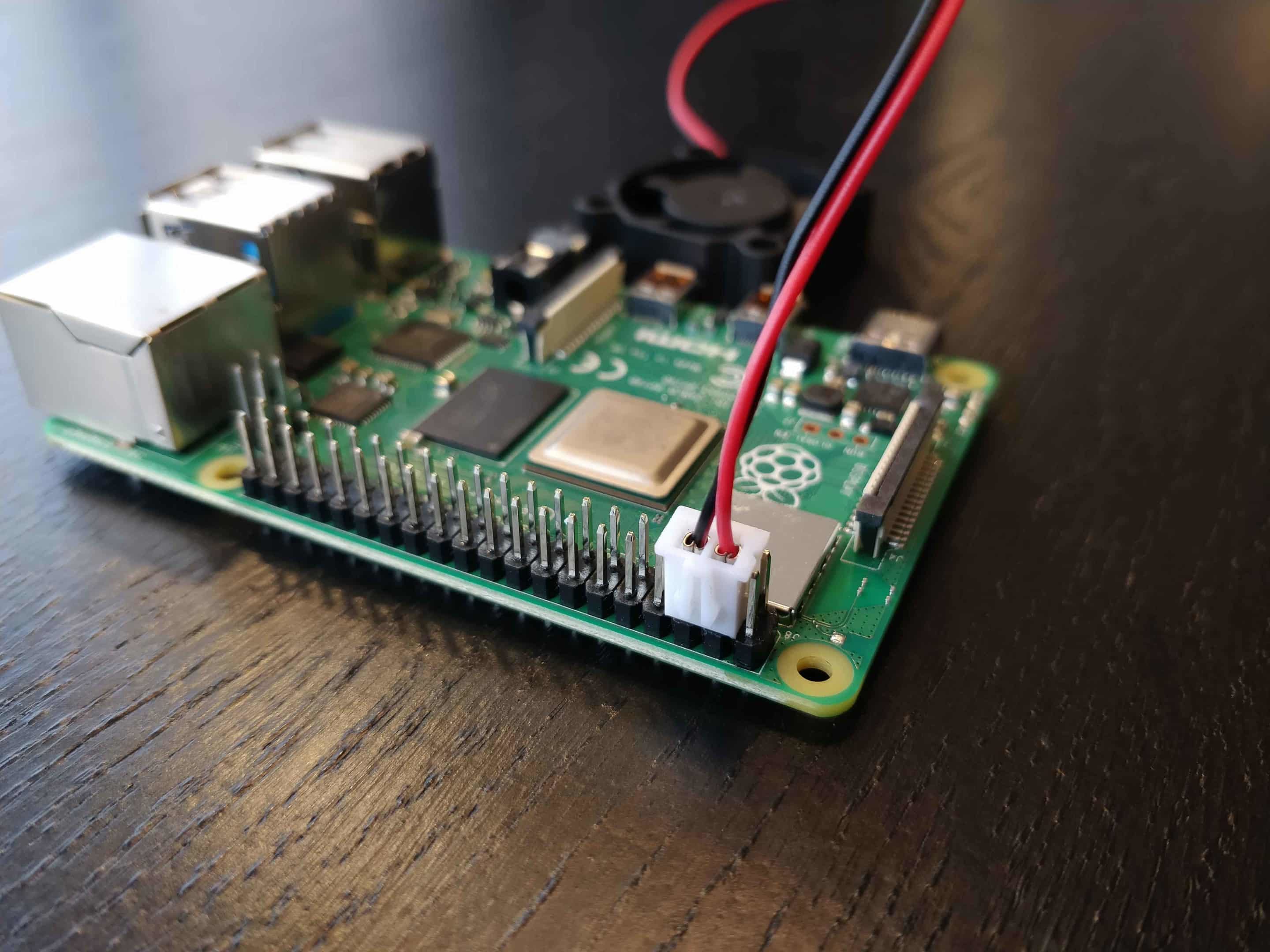Are you looking for a secure and efficient way to connect your Raspberry Pi remotely? The RemoteIoT P2P solution offers a seamless, secure, and cost-effective method to access your Raspberry Pi from anywhere in the world. With the growing popularity of IoT devices, Raspberry Pi has become a go-to platform for developers, hobbyists, and professionals alike. However, managing and accessing these devices remotely can be challenging without the right tools. This article will guide you through the process of securely connecting your Raspberry Pi using RemoteIoT P2P, a free and reliable solution.
RemoteIoT P2P allows you to establish a secure peer-to-peer connection to your Raspberry Pi without the need for complex configurations or costly subscriptions. Whether you're managing a home automation system, running a server, or experimenting with IoT projects, this tool ensures that your data remains private and your connection is stable. In the following sections, we will explore the benefits of RemoteIoT P2P, provide a step-by-step guide to setting it up, and discuss how you can download and use it for free.
As we delve deeper into this guide, you'll discover how RemoteIoT P2P stands out from other remote access solutions. We'll also cover important considerations for securing your Raspberry Pi and ensuring its performance remains optimal. By the end of this article, you'll have all the information you need to confidently connect your Raspberry Pi remotely and harness its full potential.
Read also:Melanie Griffith The Iconic Journey Of A Hollywood Legend
Table of Contents
- Introduction to RemoteIoT P2P
- Why Choose RemoteIoT P2P for Raspberry Pi?
- Step-by-Step Guide to Setting Up RemoteIoT P2P
- Securing Your Raspberry Pi Connection
- Free Download and Installation Process
- Troubleshooting Common Issues
- Benefits of Using RemoteIoT P2P
- Real-World Use Cases
- Comparison with Other Remote Access Tools
- Conclusion and Next Steps
Introduction to RemoteIoT P2P
RemoteIoT P2P is a cutting-edge solution designed to simplify remote access to IoT devices like the Raspberry Pi. It leverages peer-to-peer technology to create a direct connection between your local device and the Raspberry Pi, bypassing the need for intermediary servers. This approach not only enhances security but also reduces latency, ensuring a smooth and reliable connection.
The tool is particularly popular among Raspberry Pi users because of its ease of use and compatibility with various operating systems. Whether you're running Raspberry Pi OS, Ubuntu, or any other compatible system, RemoteIoT P2P integrates seamlessly into your workflow. It is also lightweight, ensuring that it doesn't consume excessive resources on your Raspberry Pi.
How RemoteIoT P2P Works
RemoteIoT P2P operates by establishing a secure tunnel between your local machine and the Raspberry Pi. This tunnel is encrypted using industry-standard protocols, ensuring that your data remains protected from unauthorized access. The peer-to-peer architecture eliminates the need for port forwarding or complex network configurations, making it accessible even for beginners.
Why Choose RemoteIoT P2P for Raspberry Pi?
When it comes to remote access tools, there are numerous options available. However, RemoteIoT P2P stands out for several reasons. First and foremost, it is free to download and use, making it an attractive choice for hobbyists and professionals alike. Additionally, its focus on security and ease of use sets it apart from other solutions.
Key Features of RemoteIoT P2P
- Secure peer-to-peer connection with end-to-end encryption.
- No need for port forwarding or complex network configurations.
- Compatible with Raspberry Pi and other IoT devices.
- Lightweight and resource-efficient.
- Free to download and use.
Comparison with Traditional Remote Access Methods
Traditional remote access methods, such as SSH or VPN, often require advanced technical knowledge and can be prone to security vulnerabilities. RemoteIoT P2P eliminates these challenges by providing a user-friendly interface and robust security features. It is particularly beneficial for users who want a hassle-free experience without compromising on safety.
Step-by-Step Guide to Setting Up RemoteIoT P2P
Setting up RemoteIoT P2P on your Raspberry Pi is a straightforward process. Follow the steps below to get started:
Read also:Caitlin Clarks Journey To Europe A Rising Star In The Basketball World
Step 1: Download the RemoteIoT P2P Software
Visit the official RemoteIoT website to download the software. Ensure that you download the version compatible with your Raspberry Pi's operating system. The software is available for free and can be installed with minimal effort.
Step 2: Install the Software on Your Raspberry Pi
Once the download is complete, open a terminal on your Raspberry Pi and navigate to the directory where the file is located. Use the following command to install the software:
sudo dpkg -i remoteiot-p2p.debStep 3: Configure the RemoteIoT P2P Settings
After installation, launch the RemoteIoT P2P application. Follow the on-screen instructions to configure the settings. You will need to create an account or log in to an existing one to activate the service.
Securing Your Raspberry Pi Connection
Security is a top priority when connecting your Raspberry Pi remotely. RemoteIoT P2P employs advanced encryption protocols to safeguard your data. However, there are additional steps you can take to enhance security:
Enable Two-Factor Authentication
Two-factor authentication (2FA) adds an extra layer of security by requiring a second form of verification, such as a code sent to your phone, in addition to your password.
Regularly Update Your Software
Ensure that both your Raspberry Pi OS and the RemoteIoT P2P software are kept up to date. Regular updates patch vulnerabilities and improve performance.
Free Download and Installation Process
Downloading and installing RemoteIoT P2P is a simple process. Visit the official website, locate the download section, and select the appropriate version for your Raspberry Pi. Follow the installation instructions provided earlier in this guide to complete the setup.
System Requirements
- Raspberry Pi model 3 or higher.
- Raspberry Pi OS or compatible operating system.
- Stable internet connection.
Troubleshooting Common Issues
While RemoteIoT P2P is designed to be user-friendly, you may encounter occasional issues. Below are some common problems and their solutions:
Connection Failures
If you experience connection failures, ensure that your internet connection is stable. Restart the RemoteIoT P2P application and try reconnecting.
Software Compatibility
Verify that you are using the correct version of the software for your Raspberry Pi's operating system. If issues persist, consult the official support documentation.
Benefits of Using RemoteIoT P2P
RemoteIoT P2P offers numerous advantages for Raspberry Pi users. From its ease of use to its robust security features, it is an ideal solution for remote access needs.
Cost-Effective Solution
Unlike many other remote access tools, RemoteIoT P2P is completely free to download and use. This makes it an excellent choice for users on a budget.
Enhanced Security
The peer-to-peer architecture and end-to-end encryption ensure that your data remains protected from unauthorized access.
Real-World Use Cases
RemoteIoT P2P is widely used in various industries and applications. Below are some examples of how it can be applied:
Home Automation
Control and monitor your smart home devices remotely using your Raspberry Pi.
Remote Server Management
Access and manage your Raspberry Pi-based server from anywhere in the world.
Comparison with Other Remote Access Tools
While tools like TeamViewer and AnyDesk are popular, they often come with subscription fees and may not be optimized for IoT devices. RemoteIoT P2P, on the other hand, is specifically designed for IoT and offers a free, secure, and efficient solution.
Conclusion and Next Steps
In conclusion, RemoteIoT P2P is a powerful and user-friendly tool for securely connecting your Raspberry Pi remotely. Its free availability, robust security features, and ease of use make it an excellent choice for both beginners and experienced users. By following the steps outlined in this guide, you can set up and start using RemoteIoT P2P with confidence.
We encourage you to explore the full potential of your Raspberry Pi by leveraging this tool. If you found this article helpful, feel free to share it with others or leave a comment below. For more guides and tutorials, visit our website and stay updated with the latest in IoT technology.

